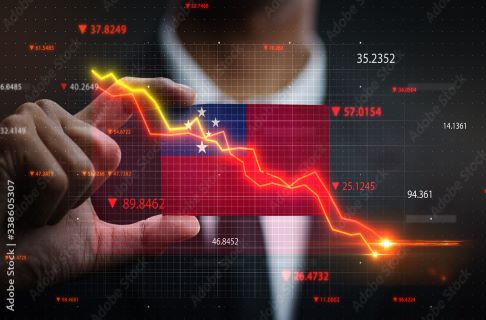
Balanced and inclusive fiscal policy packages will address the needs of the most vulnerable will assist Asian Pacific countries to undertake rapid assessments of the impact of the pandemic to estimate their fiscal needs, including by using the tools developed by UNCTAD GPM model. Next, the policy options will be provided with an analysis of their trade-offs and impacts, particularly to ensure that economic recovery measures are in line with the social and environmental goals of the 2030 Agenda.



This study assesses Samoa’s fiscal stimulus response to the COVID-19 pandemic and its plans to ensure a sustainable, green, and forward-looking path towards recovery. Though less directly impacted by the health consequences of the pandemic, Samoa’s economy has been heavily affected due to its border containment strategy and the loss of tourism and exports.
This study assesses Kyrgyzstan’s fiscal stimulus response to the COVID-19 pandemic and its future plans to ensure a sustainable, green and forward-looking path towards recovery. As a country reliant on remittances and trade, the country experienced significant economic contraction and a rise in fiscal deficit due to both the health impact of the pandemic and the consequences of mitigating measures including lockdowns.
This study assesses Pakistan’s fiscal stimulus response to the COVID-19 pandemic, evaluating the degree to which it has managed to support a recovery, which is inclusive, green and forward-looking. In order to align recovery from COVID 19 to SDGs agenda of the country, it is crucial for Pakistan to; expand social protection, mainstream gender in all approaches and measures, roll-out a mass COVID-19 vaccination campaign, shift to green transport, cut fossil fuel subsidies and achieve an inclusive digital transformation.


This paper assesses the socioeconomic impacts of Covid-19 in three South Asian economies -- Pakistan, Afghanistan, Sri Lanka -- and corresponding fiscal policy responses to mitigate these impacts. Further, it appraises the sufficiency of these fiscal policy responses to support the economic recovery in respective economies. It also estimates fiscal needs to finance the economic recovery and assesses existing fiscal space to meet the fiscal needs.
The COVID-19 pandemic led to an unprecedented contraction in the global economy that is likely to result in large fiscal deficits and inflated debt positions across countries. Stringent economic lockdown measures that started in China and were implemented in varying degrees in almost all countries of the world slowed down trade and economic activity.